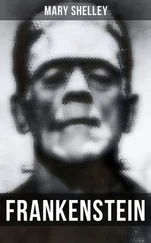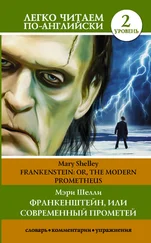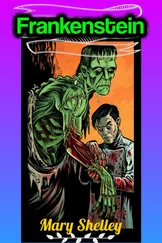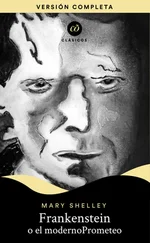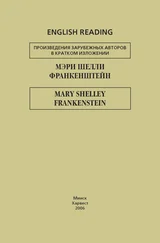Mary Shelley - The Fortunes of Perkin Warbeck
Здесь есть возможность читать онлайн «Mary Shelley - The Fortunes of Perkin Warbeck» — ознакомительный отрывок электронной книги совершенно бесплатно, а после прочтения отрывка купить полную версию. В некоторых случаях можно слушать аудио, скачать через торрент в формате fb2 и присутствует краткое содержание. Жанр: unrecognised, на английском языке. Описание произведения, (предисловие) а так же отзывы посетителей доступны на портале библиотеки ЛибКат.
- Название:The Fortunes of Perkin Warbeck
- Автор:
- Жанр:
- Год:неизвестен
- ISBN:нет данных
- Рейтинг книги:3 / 5. Голосов: 1
-
Избранное:Добавить в избранное
- Отзывы:
-
Ваша оценка:
- 60
- 1
- 2
- 3
- 4
- 5
The Fortunes of Perkin Warbeck: краткое содержание, описание и аннотация
Предлагаем к чтению аннотацию, описание, краткое содержание или предисловие (зависит от того, что написал сам автор книги «The Fortunes of Perkin Warbeck»). Если вы не нашли необходимую информацию о книге — напишите в комментариях, мы постараемся отыскать её.
The Fortunes of Perkin Warbeck — читать онлайн ознакомительный отрывок
Ниже представлен текст книги, разбитый по страницам. Система сохранения места последней прочитанной страницы, позволяет с удобством читать онлайн бесплатно книгу «The Fortunes of Perkin Warbeck», без необходимости каждый раз заново искать на чём Вы остановились. Поставьте закладку, и сможете в любой момент перейти на страницу, на которой закончили чтение.
Интервал:
Закладка:
About a week after Edmund's departure, another visitor arrived at the cottage of the exile. A violent storm had overtaken Duke Richard and his constant companion, Madeline's daughter, in one of their wanderings in the fields near Tournay. As they stood for shelter under a half-ruined building, a traveller came to share the asylum. He was a Frenchman—a Provençal by his accent—for he immediately entered into conversation with them. As he is a man spoken of in the Chronicles, he shall receive his name at once: this apparently chance-traveller was Frion, Stephen Frion, King Henry's secretary. He had been employed to search out the young prince by such tokens as Richard Simon had given, and chance had caused him to fall in with Edmund, whom he had before remarked in attendance on the Earl of Lincoln. Easily guessing that Edmund's journey might have connection with his own, he tracked him to Tournay, and then by some untoward chance lost sight of him. The indefatigable spy had spent the last week in a particular survey of every spot round the town and in the neighbouring cities, to discover his lost clue. Overtaken by a storm on his return from Lisle, he suddenly found himself under a shed with a youth whose appearance at once excited his strongest curiosity.
What Frion loved beyond all other things was power and craft. He had been a subject of the poetical King René of Provence; but, dispatched on some occasion to Louis the Eleventh, he entered into the service of that monarch, whose subtlety and faithlessness were a school of wisdom to this man. On one subject did he love to dwell—the contrast between Charles of Burgundy and Louis of France; the first commencing his reign by combating and vanquishing the latter, and dying miserably at last by a traitor's hand, his armies cut to pieces, his domains the unresisting prey of his rival; while Louis, by serpent ways, by words—not deeds—gained every point, won every follower, and established his rule at last over the greater part of the wide territories of the fallen duke. In a minor way Frion aimed at imitating Louis, but he was naturally more fiery and rash. He had visited Italy also, and studied there the wiles and cruelties of the Italian lords; crossing back to Marseilles, he had been seized by corsairs and carried to Africa:—here he put in practice some of his lessons, and contrived to make himself a favorite with his Mahometan master, who afterwards crossed to Spain to serve under the Moorish king of Grenada. Frion was quickly distinguished for his sagacity in the divided counsels of this distracted kingdom, and became the trusty adviser of him called Boabdil El Chico. When this unfortunate sovereign was taken prisoner by the Spaniards, Frion was a chief mediator between them and the Sultana Ayza. At the court of Ferdinand and Isabella he met several Frenchmen, who awakened in his heart a keen desire to revisit his native country. He took advantage of an embassy thither from the court of Spain, to fulfil his wishes, but arrived at Plessis only in time to witness Louis's death. Two years afterwards he was found in the train of the Earl of Richmond—the future secretary, spy, and favourite of Henry the Seventh—now travelling by his order to find, seize, or destroy, the last blossom of the uprooted White Rose.
Frion was rather handsome in appearance, with bright black eyes and dark hair, a complexion embrowned by the sun, a look of gaiety—unless when controled by the will of a superior, he was always laughing—a quiet kind of sarcastic laugh; he looked not the man Cæsar would have feared, except that his person was rather inclined to leanness, but he was active and well versed in martial exercises, though better in clerkly accomplishments. His early youth had been chiefly employed in copying poetry for King René—he wrote beautifully, and his small white hands were the objects of his own very great admiration. Such was his outward look; he had stores of science and knowledge within, which he seldom displayed, or, when necessary, let appear with all the modesty of one who deemed such acquirements were of little worth—useful sometimes, but fitter for a servitor than his lord. No words could describe his wiliness, his power of being all things to all men, his flattery, his knowledge of human nature, his unparalleled artifice, which, if it could be described, would not have been the perfect thing it was: it was not silken, it was not glossy, but it wound its way unerringly. Could it fail—the rage and vengeance to follow were as certain as dire, for, next to love of power, vanity ruled this man; all he did was right and good, other pursuits contemptible and useless.
Such was the serpent-spirited man who contrived to partake Richard's shelter; he eyed him keenly, he addressed him, and the Prince replied to his questions about an asylum for the night, by a courteous invitation to his home. "The boy speaks not like a cotter: his eye beams with nobleness. What a freak of nature, to make one in appearance a king's son, the plodding offspring of a rude Fleming!" As these thoughts passed through Frion's mind, the truth came not across him; and he even hesitated for a moment whether he should not, now the storm had passed, pursue his way: but his garments were wet, the ways miry, night at hand. At a second thought he accepted the invitation, and leading his horse, he accompanied the youthful pair to their cottage home.
Madeline, unsuspicious of one obviously a Frenchman, received him without fear, and after a fire had dried the visitor's dress, they sat down to a frugal supper. Frion, according to his usual manner, strove to please his hosts. His gay discourse, the laughable yet interesting accounts he gave of various adventures that had befallen him, made all three—the fair Madeline, the ardent princely boy, and the dark-eyed daughter of de Faro—sit in chained attention. When he heard that Madeline was united to a Spaniard, he spoke of Spain, of Granada and the Moorish wars; Richard's eyes flashed, and the dark orbs of the girl dilated with wonder and delight.
At length he spoke of England, and his words implied that he had lately come thence. "How fares the poor island?" asked the youth; "such stories of its tyrant reach us here, that methinks its fields must be barren, its people few."
"Had you been my comrade, young master, through merry Kent," said Frion, "you would speak in another strain. Plenty and comfort, thanks to King Harry and the Red Rose, flourish there. The earth is rich in corn, the green fields peopled with fat kine, such as delight yon islanders. 'Give an Englishman beef and mustard,' says our French proverb, 'and he is happy:' they will find dearth of neither, while the sage Henry lives, and is victorious."
"Yet we are told here," cried the youth, "that this Welch Earl, whom you call King, grinds the poor people he has vanquished to the dust, making them lament him they named Crook-back, who, though an usurper, was a munificent sovereign."
These words from a Fleming or a Frenchman sounded strange to Frion; the doubt, which he wondered had not before presented itself, now came full-fledged, and changed at its birth to certainty; yet, as the angler plays with the hooked fish, he replied, "I, a stranger in the land, saw its fair broad fields, and thought their cultivators prosperous; I heard that the king was victorious over his foes, and deemed his subjects happy. Yet, I bethink me, murmurs were abroad, of taxes and impositions. They spoke, with regret, of the White Rose, and scowled when they said that Elizabeth of York was rather a hand-maiden in her husband's palace, than Queen of fertile England."
"Now, were I an English knight, with golden spurs," said the stripling, "I would challenge to mortal combat that recreant Tudor, and force him to raise fair Elizabeth to her fitting elevation: woe the while, all Engliand's good kinghts are slain, and the noble Lincoln, the last and best of all, has perished!"
Читать дальшеИнтервал:
Закладка:
Похожие книги на «The Fortunes of Perkin Warbeck»
Представляем Вашему вниманию похожие книги на «The Fortunes of Perkin Warbeck» списком для выбора. Мы отобрали схожую по названию и смыслу литературу в надежде предоставить читателям больше вариантов отыскать новые, интересные, ещё непрочитанные произведения.
Обсуждение, отзывы о книге «The Fortunes of Perkin Warbeck» и просто собственные мнения читателей. Оставьте ваши комментарии, напишите, что Вы думаете о произведении, его смысле или главных героях. Укажите что конкретно понравилось, а что нет, и почему Вы так считаете.



